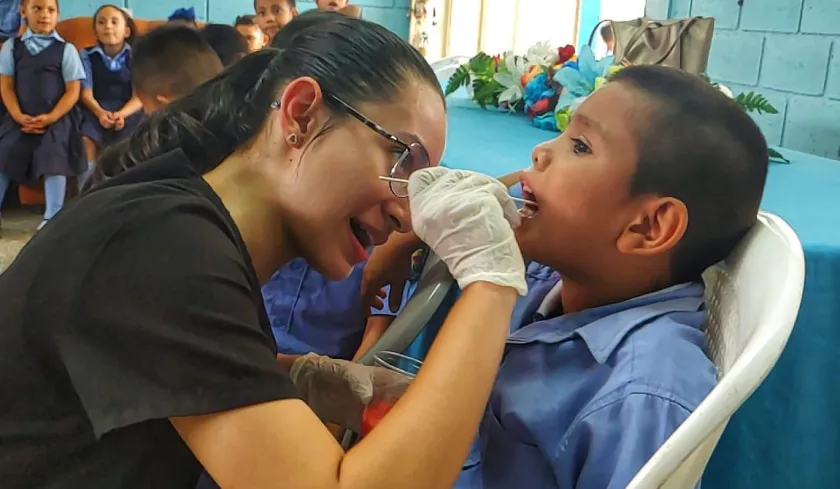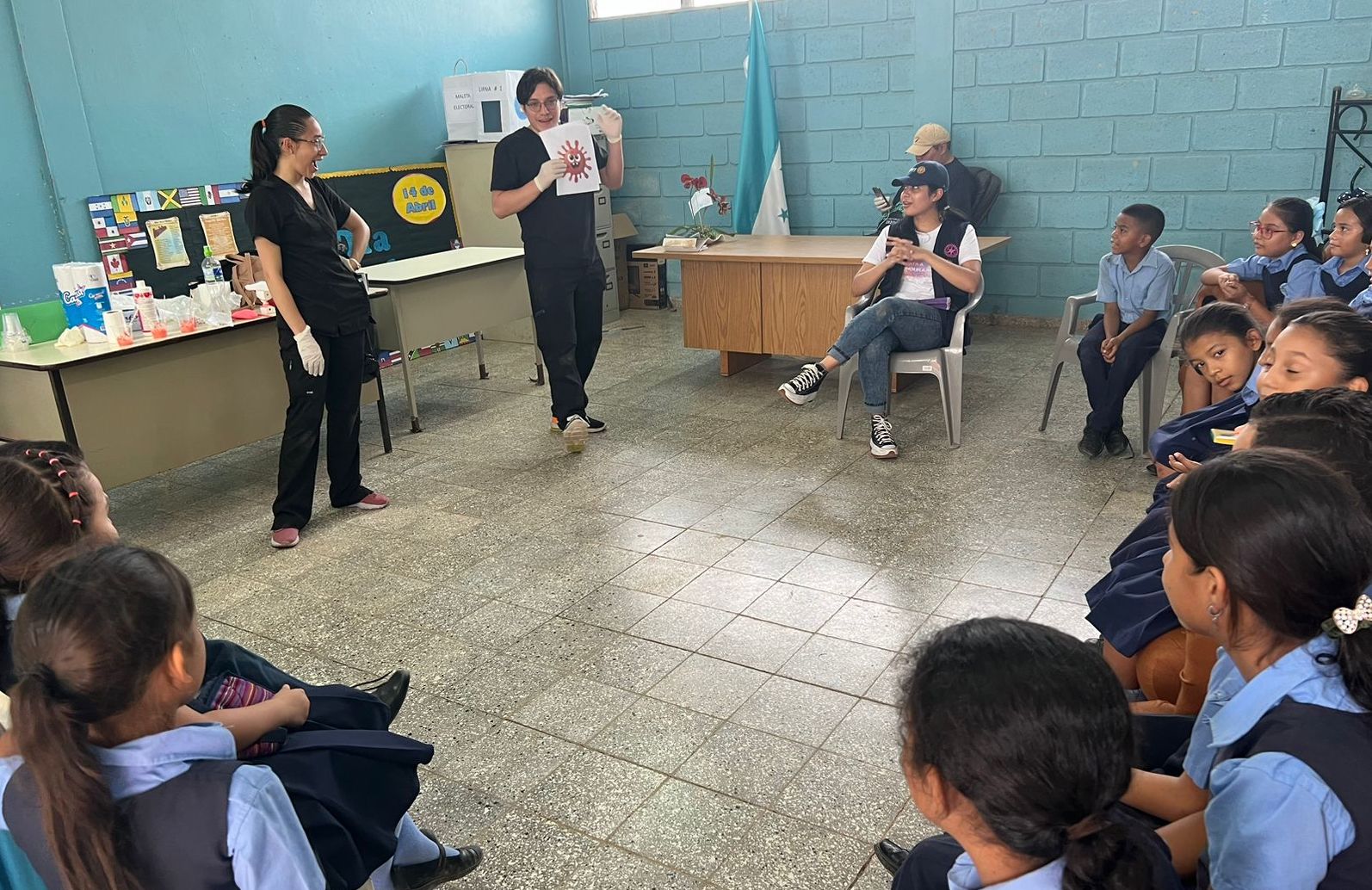After spending a semester at Northern Michigan University, Nataly Zuniga Sosa will return to her home country of Honduras with much more than positive memories and a greater understanding of American culture and U.S. higher education. The sixth-year medical school student, who wants to specialize in pediatrics, is equipped with valuable knowledge and program ideas that she plans to implement in poverty-stricken areas of Honduras, gleaned from conversations with NMU Center for Rural Health Director Elise Bur.
Sosa was intrigued by the center's Community Health Worker (CHW) certification training program, which prepares individuals to serve as liaisons between residents from the communities they serve and the local health care system. Because of their shared geography and experiences, CHWs are uniquely qualified to relate and provide support to individuals, reducing barriers and increasing access to care. Sosa said this would “break down walls” for many people in Honduras who are reluctant to communicate directly with medical personnel.
“The U.P. Community Health Town Hall program I would also like to bring to Honduras,” said Sosa, demonstrating impressive English language proficiency despite relatively limited training. “It is a webinar every month that invites experts to talk about specific diseases and general health. It does not require a lot of money; only internet/Zoom and people willing to be part of it. The webinars can be watched on the internet later if missed.
“I want to introduce this to primary schools. Maybe professors can give extra points to students who watch in their homes with one or more adults, and take the short quizzes after to see how much they learn. Many diseases we can prevent, but people don't know how. This would impact the health of the future generation, but also the adult population in Honduras. It was eye-opening and revolutionary for me to meet Elise. She is making a big impact on U.P. citizens with few resources.”
For her part, Bur said she was equally energized after meeting with Sosa. The two initially talked about health disparities in rural areas and started comparing the U.P. to Sosa's home region in Honduras. They addressed challenges such as transportation, broadband access, food insecurity, and how the economic climate in rural areas impacts access to and affordability of healthcare.
Bur also explained how the NMU Center for Rural Health was developed and some of its initiatives designed to address issues unique to the U.P. Beyond the two programs Sosa referenced above, these include the Recipe for Success project, which creates and shares recipes incorporating common foods provided by Feeding America West Michigan Mobile Pantries; and the annual Oral Health Literacy project that raises awareness among youth through a collaboration with NMU students on the pre-dental academic track.
"It was such a pleasure to discuss rural health challenges and potential solutions with Nataly,” Bur said. “She was incredibly enthusiastic to learn how the center forms collaborative partnerships and leverages resources to provide opportunities that improve people's health and wellbeing. As we talked about some of the center's initiatives, it quickly became apparent that she was already thinking about how they could make an impact in her hometown community. Nataly has the passion and drive to make a difference, and I suspect we'll stay in touch and continue sharing stories and information as her education and work continues in the health care industry. I can't wait to hear about the difference she's making in people's lives."
Sosa has already made a difference through volunteer service in Honduras. In 2017, before she entered medical school, she joined a medical brigade in a high-poverty area, entertaining and assisting children receiving health care services. On three subsequent and similar trips to other regions, she provided medical attention, diagnosing kids' conditions and dispensing medication. Sosa's most recent trip to Choluteca focused on oral pediatric health. Her team applied fluoride, distributed toothbrushes and paste, and provided brushing tips. See a related video that features her here.
Sosa is attending Northern as part of the Global Undergraduate Exchange Program (UGRAD), which assigns select students from multiple countries to various universities across the country to complete academic courses and participate in other community activities. She applied in order to expand her horizons and learn more about the U.S. health care system. Her initial goal was to “shadow” a local medical professional, but her visa did not allow for that in a clinical setting.
“I was very sad about it; my plans were dashed,” Sosa said. “After, this amazing opportunity came to me. Ellen [Doan] of NMU International Programs put me in contact with Elise. What I got was better. First, just for me and my experience here. And now, I have things I can bring for others in Honduras. A lot of doors opened for me.”
Sosa is taking courses ranging from microbiology and human anatomy/physiology to the UGRAD-required American government. But she demonstrated the first thing she learned upon arriving in Marquette: the common regional gesture of positioning both hands in a way that reflects “the mitten state,” with its Upper and Lower Peninsulas.
“I also tasted pasties; very delicious,” she added with a smile. “I like the lake and I'm excited to see snow, but I don't like the cold. I have been impressed by how kind and helpful people are here. My first thought was coming here to learn American culture. I also connect with other international students from Korea, Germany, Switzerland, Japan and other countries, so I'm learning about many different cultures.”
Sosa is from Tegucigalpa, the capital city of Honduras. She will return to medical school at the Universidad Nacional Autónoma de Honduras.


